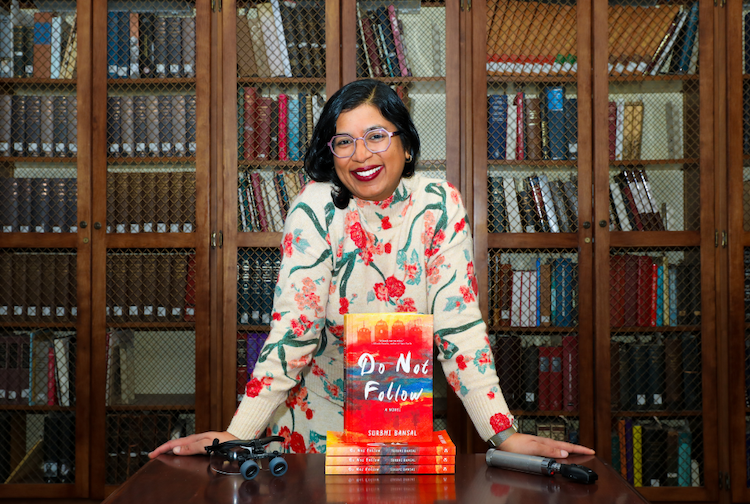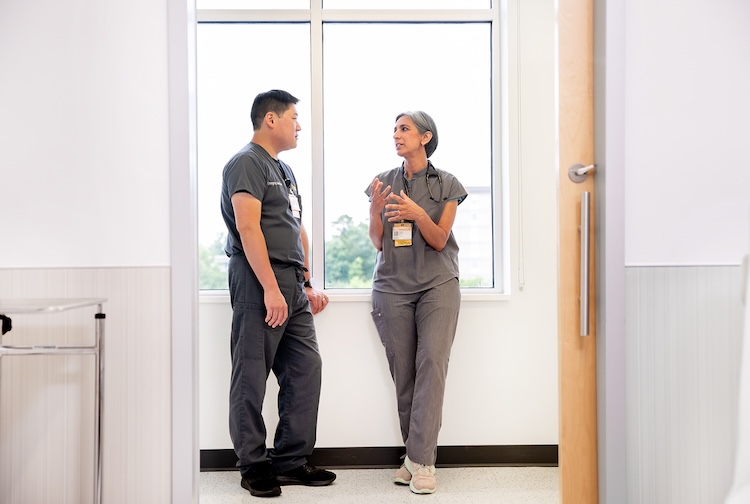School of Medicine alumnus treats the neediest patients in some of the world's most dangerous countries
May 17, 2017
Wednesday, May 17, 2017
Adrian J. Holloway, M.D., has traveled the world — to some of the most dangerous countries, by State Department reckoning — as an educator and cardiac intensivist. He has treated children fleeing ISIS in Northern Iraq, malaria victims in Malawi and earthquake survivors in Haiti.
What has he learned?
“No matter where you go, mothers are the same,” said Holloway, a 2006 graduate of Virginia Commonwealth University School of Medicine. “They know when their child is sick, and they know when their child is healthy.”
Holloway, assistant professor of pediatrics at the University of Maryland School of Medicine, plans to make sure more of them stay healthy. It's part of his work as program director of the Global Health Pediatric Critical Care Fellowship, the first of its kind, and it's given him the chance to assist in coordinating efforts to develop the first pediatric intensive care unit in Malawi.
Mothers often do know best, Holloway said. In one memorable case in Iraq, a mother insisted that her child was not progressing properly after a surgery to fix a heart defect. Though physicians believed he was recovering, the mother persisted until a cardiac fluid pocket was discovered. When properly draining, the patient recovered quickly.
“There is such a sense of joy when a patient is healing,” Holloway said.
Though he didn't participate in mission trips abroad as a VCU student, Holloway was pulled into global medicine by a friend soon after the 2010 earthquake in Haiti. There, he discovered a calling: treating the world's neediest patients in often-primitive facilities.
“I have fallen in love with the idea of high-tech advanced care in places that many feel aren't ready for it,” he said. “I really think those are the places where we need technology and telemedicine the most.
“There is a prevailing thought that the only way to impact health care in emerging economies is to provide only basic, primary-care driven assistance. Because many countries are beginning to excel at initiatives aimed at reducing infant mortality, improving maternal-fetal health and improving access to vaccines, our new avenues have to be focused on what happens to these children once they survive infancy. This is not limited to just cardiac care, but to interventions and treatments involving cancer, trauma and burn as well as sepsis.”
Holloway shared his experiences with current and prospective medical students at a recent Second Look program on the MCV Campus. The program gives applicants who are underrepresented minorities a chance to explore the School of Medicine's programs in more depth.
Each year, a weekend of activities is organized by the School of Medicine's Office of Student Outreach along with the MCV Campus' chapters of the Student National Medical Association and Latino Medical Student Association. The weekend offers opportunities to interact with faculty and students in a more relaxed atmosphere than the usual formal tours and interviews. Holloway was president of SNMA during his time at VCU.
During his talk, he encouraged students to remember the importance of giving back to communities — and to paying it forward for other physicians-to-be.
“I'm here because of the work of someone else,” he said, noting that he did his residency in a Florida hospital where his grandmother had been a nurse many years before. “Medicine is a legacy.”
Holloway is proud to be able to save children who only a few years ago might not have survived, and looks forward to helping them lead healthy lives. He's had mothers comment that they're surprised their child is “so pink” after cardiac treatments that make them better.
“Color change in a child can bring so much hope,” he said. “This is a child that's going to be able to go to school, or play soccer and have all the childhood experiences.”
Finding a passion, as he has for global health, will make today's students better physicians, Holloway said.
“They're going to make someone's life better,” he said. “And they'll do it over and over and over again.”
Subscribe for free to the VCU News email newsletter at https://news.vcu.edu/ and receive a selection of stories, videos, photos, news clips and event listings in your inbox every Monday and Thursday.




